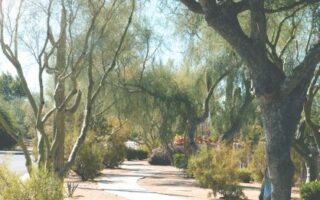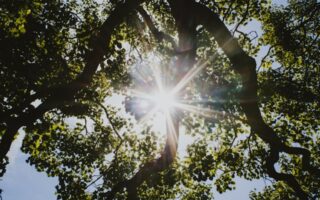In the New Testament and the early Christian church, healing was an essential aspect of Christian ministry and discipleship. It still plays a role in our churches and our liturgies, but I think most of us do not consider ourselves to be healers or to be called to heal. One reason for this is that we fail to distinguish between healing and curing. When we focus on curing, removing all traces of illness, we turn all aspects of healing over to experts. We take our illnesses to doctors or psychologists. When the doctors and the psychologists fail, we might possibly turn to spiritual experts or spiritual places recognized for miraculous cures. When we look to experts, we look outside ourselves. We look for something external to us to be added so that we might be cured.
I think we even think of Jesus as a spiritual expert, an extraordinary healer. His healing ministry is a sign of his divinity, to be worshipped and adored, but not followed. I am not going to suggest that as Christians we should be able to cure the way Jesus, Peter, and other New Testament figures could. Nor would I ever suggest that we should not consult experts when facing illness of any kind. But I do think the healing ministry of Jesus asks us to look more deeply than the surface cure. It asks us to look at the wider meaning of healing, to recognize love as the source of creation, redemption, and healing, and to see that the source of that healing is God. We are called to participate in healing by participating in love, a love that is not external to who we are as persons, but is the deepest part of who we are.
Psalm 88 is a lament. Lament is a form of prayer that cries out to God from all forms of distress and all forms of alienation. When a person laments to God, he or she cries out to God, sometimes just letting God know his or her pain, sometimes asking God for help, and sometimes accusing God of abandonment. When I teach I refer to Psalm 88 as the lamentiest lament. What I mean by this is that it is one of the few laments in the Psalter that never turns around. Often a lament will have a moment when the Psalmist recognizes that God has seen or heard his or her prayer and has done something to help. Psalm 88, however begins in despair and ends in despair. The Psalm ends this way,
But I, O Lord, cry out to you; in the morning my prayer comes before you. O Lord, why do you cast me off? Why do you hide your face from me? Wretched and close to death from my youth up, I suffer your terrors: I am desperate. Your wrath has swept over me; your dread assaults destroy me. They surround me like a flood all day long; from all sides they close in on me. You have caused friend and neighbor to shun me; my companions are in darkness.
Psalm 88:13-18
This lament does not seem like the kind of thing that would be helpful to someone suffering despair and yet I remember reading about a woman who went into a nursing home and read this very Psalm to an old, lonely resident of the home. When she had finished reading this Psalm, the resident looked up and said, “Finally, someone who knows how I feel.”
It may be true that we are unlikely to cure the illnesses or solve the problems that afflict our family, friends, and people within our communities, but that doesn’t mean we are not healers. Discussing healing in Christian communities, Donald E. Gowan writes,
We do some good, and are challenged always by new opportunities, but we never succeed completely in curing anything. Like many a physical or psychological disability, real healing does occur, but some pain remains…Real healing is experienced by people with an incurable illness who find it possible to face it without despair precisely because they are Christians, by people who cope with daily pain as they depend on Christ for strength, by those who remain healthy people even though they live in the midst of irresolvable family problems, and by those whose faith enables them to endure oppression and injustice without becoming victims of destructive hatred.
Salvation as Healing
Donald E. Gowan
Healing occurs when we bring comfort to others by visiting, by listening, by sharing our own experiences of suffering, and by offering our loving presence. The love that we offer is like a mustard seed. It is so small it seems insignificant, but because its source is the creative and redemptive love of God, hidden within our small participation lies a full-grown tree large enough for a bird to build its nest. We may suffer from our own wounds, we may be bound as recluses in our houses of anxiety, but even with these limitations, and sometimes through these limitations, we are called to participate in the healing love of God. The more fully we participate, the more fully we will come to know and experience the creative and redemptive love of God breathing, moving, and fully alive within us and within every person we meet.














